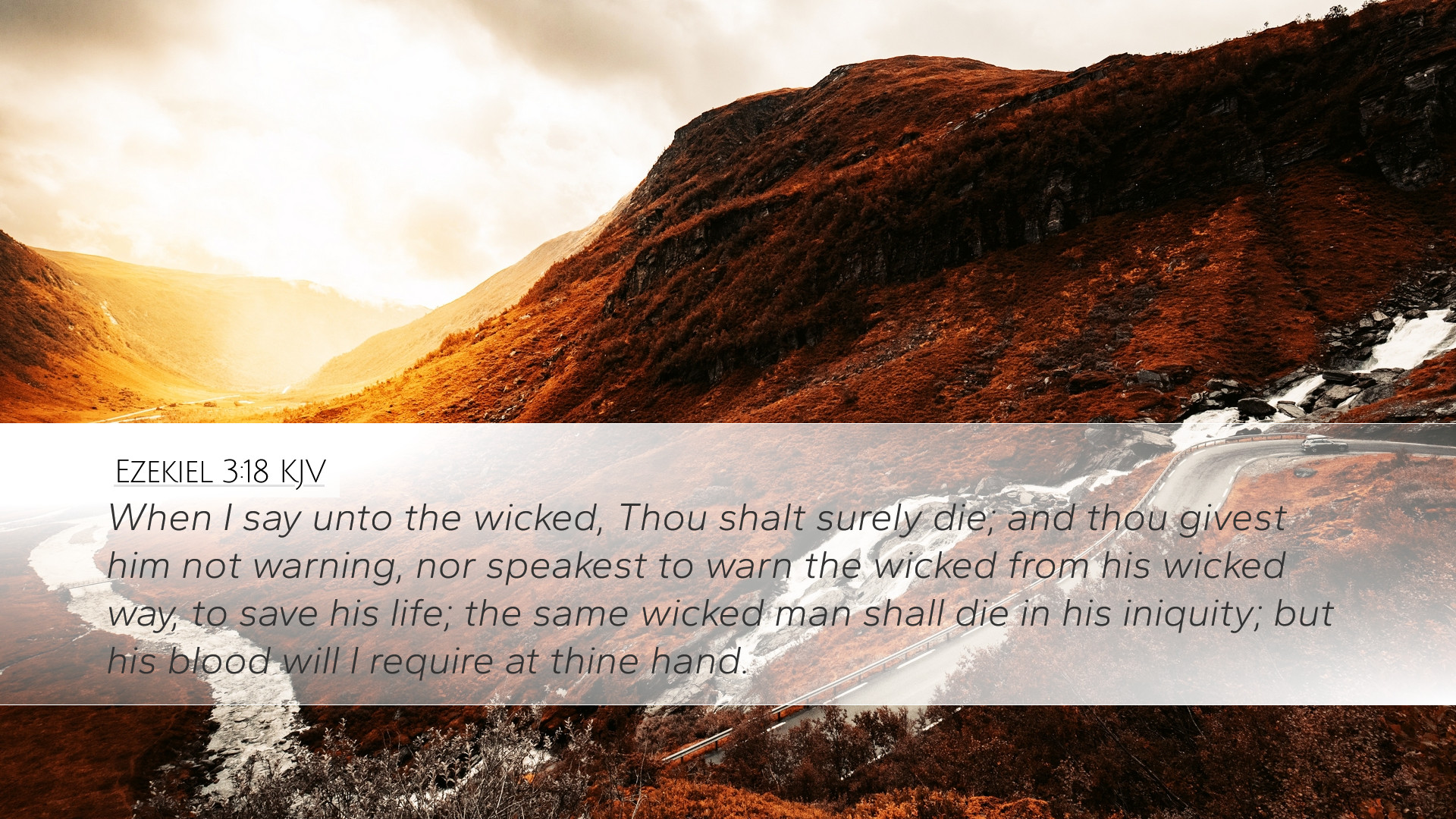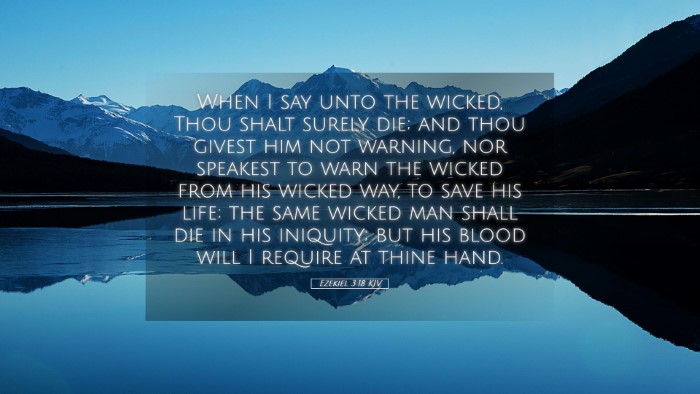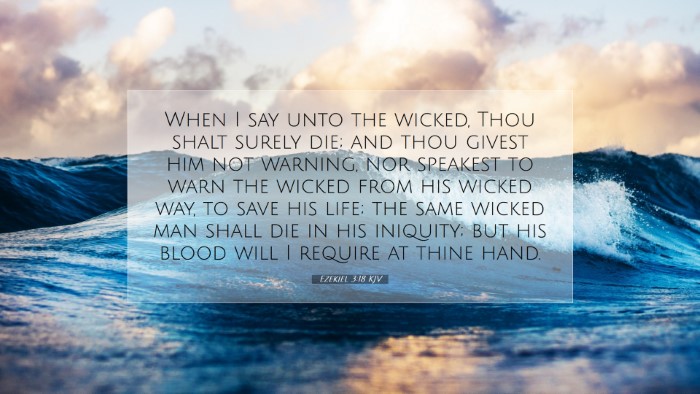Ezekiel 3:18 - A Commentary
Ezekiel 3:18 states:
"When I say to the wicked, You shall surely die; and you give him no warning, nor speak to warn the wicked from his wicked way, to save his life; that same wicked man shall die in his iniquity, but his blood I will require at your hand."
Introduction
The prophetic call of Ezekiel encompasses themes of responsibility, accountability, and the urgency of prophetic warning. This verse places a heavy weight upon the shoulders of those whom God has commissioned to deliver His messages. By examining insights from esteemed public domain commentaries, we can glean a deeper understanding of this scripture's implications for both the prophet Ezekiel and contemporary readers.
Responsibility of the Watchman
According to Matthew Henry, the role of the watchman is to observe and warn when danger approaches (Henry's Commentary). Ezekiel is appointed as a watchman for Israel, tasked with the grave responsibility of forewarning the wicked about their impending doom. If he neglects to warn them, he bears the responsibility for their death. This theme of responsibility underlines the importance of vigilance in spiritual leadership.
- Divine Accountability: Henry emphasizes that the watchman's accountability is directly linked to God's command. The absence of warning signifies a failure to fulfill one's divine obligation.
- Heart for the Wicked: The necessity of warning the wicked reflects God's desire for repentance and restoration, illustrating the compassionate nature of the Lord towards His people.
The Role of Prophetic Warning
Albert Barnes sheds light on the concept of God’s sovereignty and the moral imperative placed upon the prophet. He articulates that the pronouncement of judgment serves not just as a proclamation of doom but as a call to repentance.
- God's Desire for Repentance: Barnes notes that the objective of prophetic warning is to instill a sense of urgency in the hearts of the people, prompting them to turn from their wickedness.
- Preventive Measure: The warning is a preventive measure aimed at averting judgment, highlighting God's mercy and readiness to forgive.
Consequences of Ignoring the Call
Additionally, Adam Clarke emphasizes the dire consequences faced by the prophet should he remain silent. The notion of blood on the hands underscores personal accountability. Clarke explains the metaphorical language, indicating that the loss of a soul is a serious matter requiring vigilance.
- Impacts on the Watchman: Clarke argues that this passage highlights the significant impact of the prophet's silence—not merely on the slain but on himself, who will be judged according to his unwillingness to act.
- Responsibility to Others: He also underscores that the call applies beyond Ezekiel; it resonates with all who are charged with gospel proclamation, stressing the communal aspect of responsibility.
The Broader Context
In examining this verse, it is also crucial to consider it within the broader narrative of Ezekiel. The prophet serves a dual role: as a bearer of God's messages and as an intercessor for Israel. This duality suggests the complexity of prophetic ministry.
Theological Implications
The text reveals profound theological truths regarding God's justice and mercy. The fierce warning against complacency challenges leaders and believers alike.
- God's Justice: The justice of God is evident in His willingness to hold the watchman accountable. This illustrates that divine judgment is not arbitrary but rather conditional upon human response.
- Call to Active Faith: The passage implores believers to actively engage in ministry rather than passively observe spiritual decline.
Application for Today’s Christian Leaders
This passage remains highly relevant for modern-day pastors, theologians, and lay leaders. The responsibility of delivering God’s message persists, and the stakes are high.
- Urgency in Ministry: There is an urgent need for leaders to address sin and moral decay within the church and broader society. Silence can lead to dire consequences.
- Courage to Confront: Leaders are called to confront wickedness with the love of Christ, encouraging repentance while being clear about the consequences of sin.
Conclusion
In conclusion, Ezekiel 3:18 serves as a poignant reminder of the weighty responsibility of the watchmen in the faith community. The insights from Matthew Henry, Albert Barnes, and Adam Clarke enrich our understanding of the call to warn and the consequences of silence. As we reflect upon this scripture, may we cultivate the courage, compassion, and conviction to fulfill our roles as effective communicators of God’s Word.


